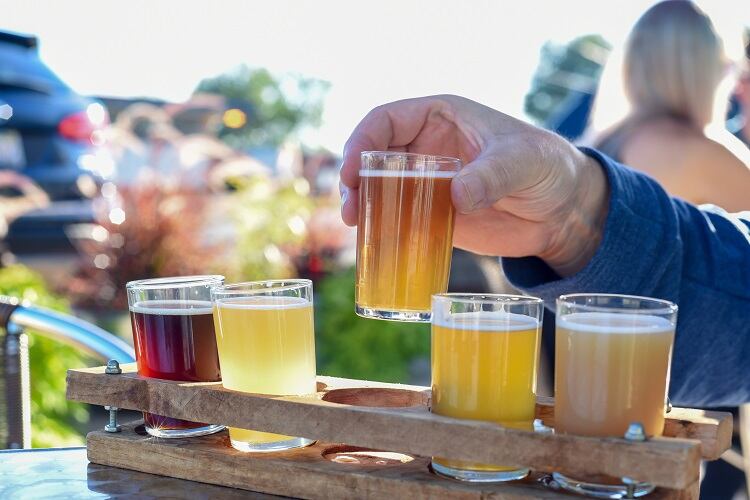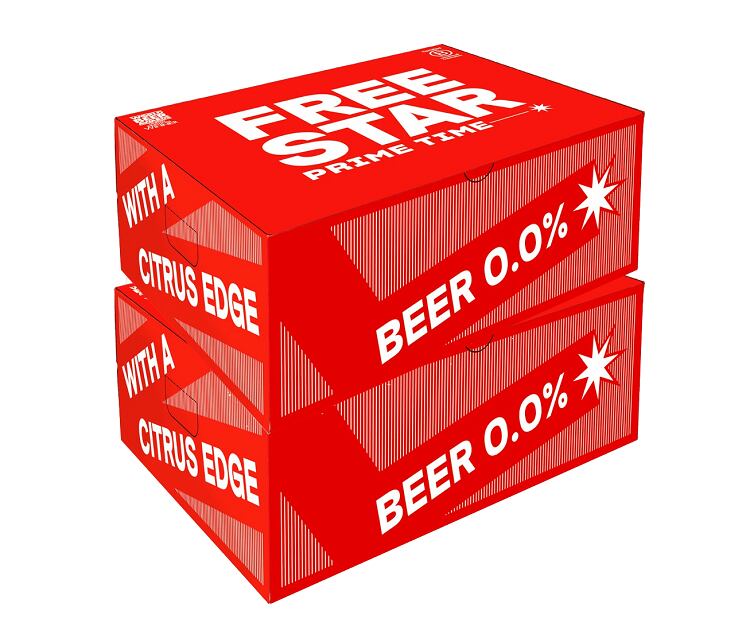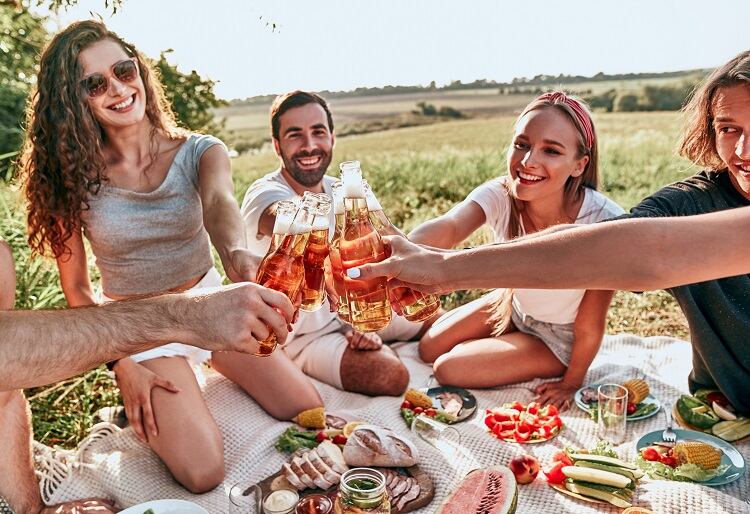Reducing alcohol intake can provide an opportunity for drinkers to improve physical wellbeing.
But what about their mental health? And the health of the planet? At last week’s Low2NoBev event in London, experts revealed they believe a combination of these drivers is helping push the category forward.
‘Prime time’ for low and no
Health has become ‘incredibly’ important to consumers, according to Felix von Hurter, Co-founder of UK alcohol-free beer start-up Freestar. “And it’s not just physical health, but also mental health.”
A significant 86% of Millennial and Gen Z populations value mental health to be as important as physical health, he continued. “And the low to no category contributes to both of those.”
The co-founder believes that making a ‘positive choice’ to avoid alcohol consumption will have a positive impact on both body and mind. And that is good news for the category.
“The fact that people are much more conscious about what they are putting into their body, and the effect it is having both psychologically and physically, means it’s absolutely prime time for the low and no category to fit into that mindset.”
Britvic Soft Drinks has also observed growing interest for ‘health and wellness’.
The beverage manufacturer boasts a portfolio of more than 30 brands, including Robinsons and Tango, and commercialises PepsiCo brands Pepsi, 7UP, Lipton Ice Tea, and Mountain Dew in the UK and Ireland.
“People are looking for healthier alternatives with their lifestyles, and the last 18 months of COVID has massively accelerated that,” Britvic’s Senior Channel Development Manager Katy Watts told delegates.
“People are much more aware of what they’re putting into their bodies and what they’re eating and drinking.”
Of course, health and wellness mean different things to different people. While some consumers want to reduce sugar from their diet, others are seeking to increase consumption of vitamins and probiotics, she continued. “And then other people want to look to moderate alcohol consumption.”
Uptick in ‘low and no’ as a moderation tool
UK alcohol education charity Drinkaware has been monitoring the ‘low and no alcohol’ as a moderation technique over the last few years, and has similarly observed an uptick in demand.
“We have seen alcohol-free and no alcohol products becoming more acceptable as a moderation technique over the last five years we’ve been tracking it,” Annabelle Bonus, Director of Evidence and Impact at Drinkaware told delegates at this month’s Low2NoBev event in London.

Consumers appear increasingly willing to try these products, and according to Drinkaware’s research, drinkers are more likely to try lower alcohol products rather than 0.0% ABV alternatives. “We know that women are more likely to try these products than men as a moderation technique, and we know that younger drinkers are more willing to try these products.”
Further, the charity has observed that drinkers considered to be in the lower risk category are ‘far more likely’ to try these products as a moderation technique, compared to those categorised as ‘higher risk’ drinkers.
This is something Drinkaware wants to keep an eye on. “We want to consider, in terms of how useful they are as a moderation technique, how we make these products more acceptable to higher risk drinkers.”
Buying into sustainability
Another reason consumers may be drawn to the category relates to sustainability, suggesting ‘low and no’ benefits from not only a health halo, but a social and environmental one too.
“It’s no secret that consumers will buy into brands they share their emotional values with,” said Freestar’s von Hurter.
While 10 years ago, the big trend in beer was craft, nowadays ‘sustainability has become so emotional’. “It’s not just a rational thing. Especially for young people, it’s truly an emotional cause. Therefore a brand that has sustainability at its heart is something that people buy into.”
Around this time last year, Freestar became the first alcohol-free brand to achieve B Corp certification. The brand claims its brewing process uses 80% less water than other brands, and creates 70% less waste. Freestar also uses 100% recyclable materials and has committed to a net-zero carbon emission target by 2030.

Now that it has achieved B Corp status, the brand will be assessed annually across four areas: community, environment, customers and governance.
“It’s not a huge leap to imagine that people are more consciously buying sustainably. They’re also probably more conscious about what they’re putting into their body, they’re more conscious about their mental health. “So alcohol-free and sustainability actually sit in a really nice world.”
A ‘generation shift’
The category’s popularity can been driven solely by health however. For Britvic’s Watts, taste is still king.
“When people buy into drinks, taste is the number one reason for purchasing. If you went back maybe 5-10 years, there would have been very limited availability for low and no alcohol alternatives,” she told delegates, suggesting that consumers would have options as limited as a ‘lime and soda’.
“But now, there has been such proliferation of the category and such an exciting array of products available that now it’s really cool to try these products. It’s something seen as a little bit different…
“I think health is a big driver, but it is also a whole generation shift in terms of how cool people look.”
Freestar’s von Hurter agrees. “We’re right in the middle of something that is more than a trend. It’s a real movement. And it’s a cultural shift. It’s not going to return back to binge drinking in the way it used to be.”


